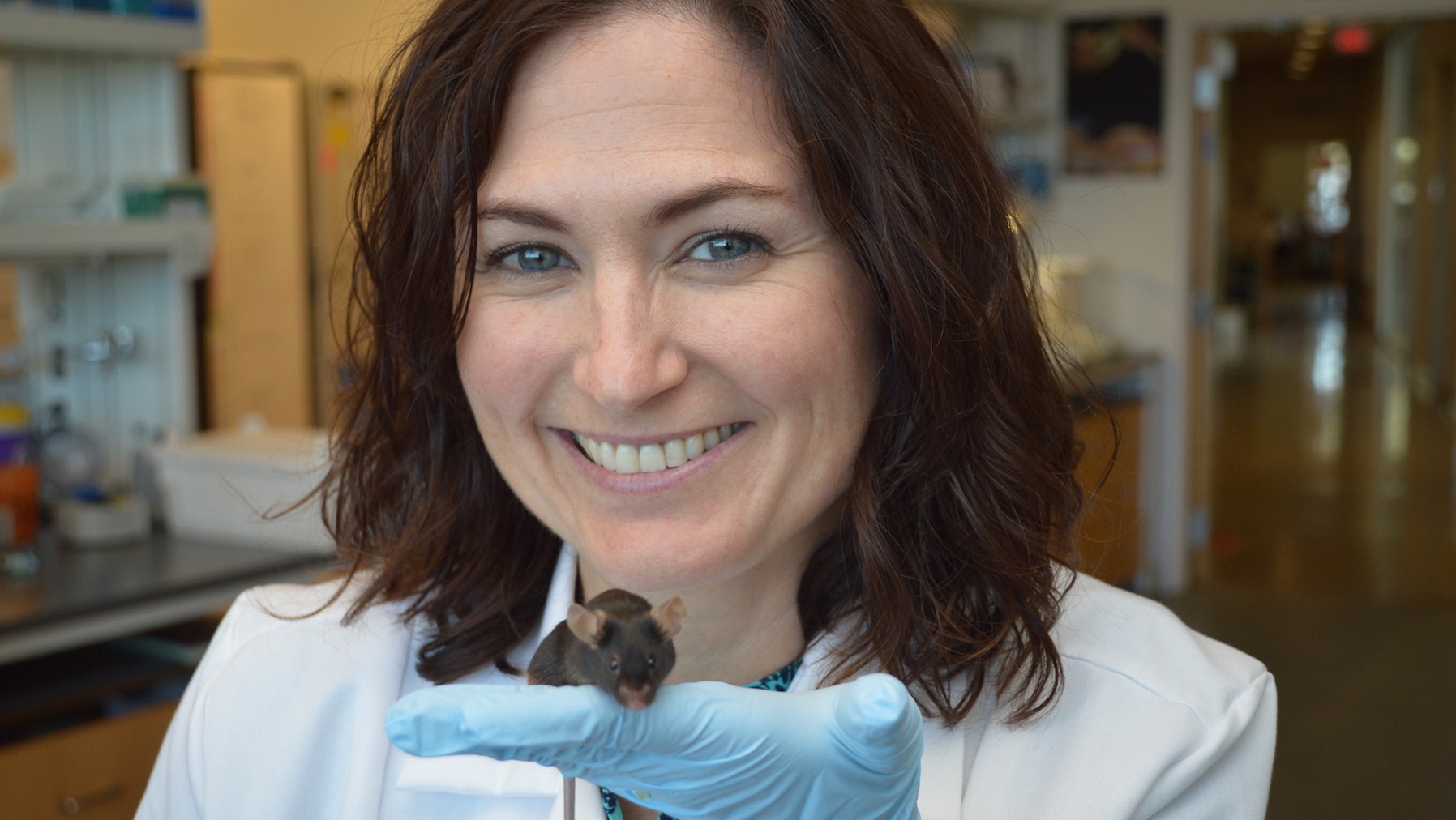As the parent of two children, Courtney Griffin, Ph.D., is well aware that the choices she and her husband make will have a profound impact on their daughters’ lives.
But Griffin is also a scientist at the Oklahoma Medical Research Foundation who studies the emerging field of epigenetics. And through her research in this area, she is learning that the decisions we make as parents—what we feed our children, how much attention we give them as infants—may impact more than just our children, but also the genetic destinies of our descendants for generations to come.
Epigenetics are chemical changes to the genome that affect how DNA is packaged and expressed without affecting the underlying genetic sequence.
“Epigenetics works like a watermark on top of genes,” said Griffin. “If you imagine your genetic makeup as a well-oiled machine, epigenetics are like the rust that settles on it and leaves a surface coating. This can muck things up, suppressing genes that need to work or turning on genes that are meant to be quiet.”
Scientists have determined that these marks can form as a result of the foods we eat, the toxins we ingest or even the stressful events we experience. And that they can persist for generations in some species.
“The real news with epigenetics is that these actions can theoretically affect more than just you and your children, but also your great grandchildren, great-grandchildren and beyond,” said Griffin.
A geneticist by trade, Griffin has spent her career manipulating DNA, the encyclopedia of genetic information that is inside of each of our cells. Griffin edits DNA of laboratory mice so that she can understand the development and function of blood vessels in these animals. She said her experience has shown her that epigenetic marks really can serve to reprogram genes’ behavior.
“Anything that genetics controls, which is essentially everything about us, can be altered,” said Griffin. “It comes back to how the marks are read by proteins in the cell. Any extra variable changes what they read, and these variables can be introduced by bad lifestyle habits.”
Luckily, said Griffin, research suggests these epigenetic marks don’t have to be permanently etched onto your DNA. “It appears these marks are quite malleable in humans, and making healthy choices like eating a better diet or reducing stress can make a difference,” she said.
“To me, it’s profound and empowering that we can influence how our genes work through the choices we make,” she said. “It gives us yet another reason to live a healthy life and make smart choices, because it doesn’t just affect us.”



